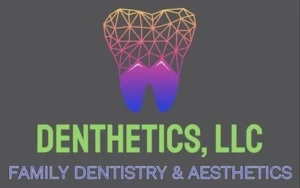How Can I Manage My TMJ At Home?
TMJ disorder, or also called temporomandibular joint disorder, is a medical condition affecting the jaw and surrounding muscles. TMJ symptoms range from mild discomfort to severe pain. They can substantially impact a person’s quality of life. While treatments are available for TMJ disorder, maintaining a healthy lifestyle is essential to managing the condition.
Omega-3 Fatty Acids and Pain Management
Maintaining a healthy diet is a leading factor in managing TMJ disorder. In addition, eating a balanced, nutritious diet rich in vitamins and minerals can help reduce inflammation and promote healing in the affected area. Foods like salmon and walnuts, high in omega-3 fatty acids, carry anti-inflammatory properties and can be beneficial for managing TMJ pain.
In contrast, certain foods can aggravate the symptoms of TMJ disorder. Hard and chewy foods, including gum and candy, can cause strain on the jaw muscles and worsen the pain. Caffeine and alcohol consumption can also increase stress levels and contribute to TMJ symptoms.
Benefits of Regular Exercise
Regular exercise and stretching can help relieve tension in the jaw muscles and improve jaw mobility. Gentle activities such as yoga and swimming promote muscle strength and create postural integrity through functional muscle movements. Integrating posture and bite through a neuromuscular orthotic will increase patient strength with decreased symptoms.
Reducing Stress to Ease the Symptoms of TMJ Disorder
Stress is a significant contributor to TMJ disorder symptoms, and stress causes tension in the body, leading to muscle tightness and pain. Stress management techniques such as meditation, diaphragmatic breathing, and mindfulness can aid in reducing stress levels and improve TMJ symptoms with increased oxygen saturation.
Sleep Hygiene Can Improve TMJ Symptoms
Sound sleep is essential for overall health and well-being, particularly for managing TMJ disorder. Poor sleep quality can worsen TMJ symptoms and increase pain and discomfort. Maintaining a regular sleep schedule and practicing a proper sleep hygiene routine can improve sleep quality and reduce TMJ symptoms.
Combining Technology and Expertise for TMJ Relief
While lifestyle changes can effectively manage TMJ disorder, some may require more advanced treatment options. Our Kenosha dentist, Dr. Mata-Stein, combines state-of-the-art technology with a holistic, non-surgical approach to provide effective and long-lasting TMJ relief. She utilizes advanced diagnostic tools, including digital x-rays, to diagnose the condition and accurately develop a personalized treatment plan.
Denthetics, LLC offers a range of non-surgical treatment options, including neuromuscular dentistry, which involves using custom oral appliances to realign the jaw and relieve tension in the surrounding muscles.
